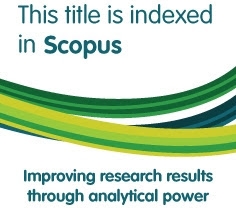al-Ḥarāk al-ṣūfī wa al-daʿwah al-insānīyyah fī Indūnīsīyā: Ḥālah al-Ḥabīb Abī Bakr al-ʿAṭṭās al-Zabīdī
Abstract
Keywords
Full Text:
PDFReferences
Abaza, Mona. 2004. “Markets of Faith : Jakartan Da’wa and Islamic Gentrification.” Archipel-etudes Interdisciplinaires Sur Le Monde Insulindien 67: 173–202. doi:10.3406/arch.2004.3813.
Alatas, Ismail Fajrie. 2008. “Securing Their Place: The Ba’alawi, Prophetic Piety and the Islamic Resurgence in Indonesia.” Thesis. https://scholarbank.nus.edu.sg/handle/10635/16742.
———. 2011. “Becoming Indonesians: The Bā ’Alawī in the Interstices of the Nation.” Die Welt Des Islams 51(1): 45–74. doi:10.1163/157006011X556120.
Al-Hadhrami, Salim bin Smeer. 2009. Safīnat Al-Najā. Dar al-Minhaj.
Al-Qaradawi, Yusuf. 2001. Priorities of the Islamic Movement in the Coming Phase. Swansea: Awakening.
Arai, Kazuhiro. 2004. Arabs Who Traversed the Indian Ocean: The History of the Al-’Attas Family in Hadramawt and Southeast Asia, C. 1600-c. 1960. Michigan: University of Michigan.
Assegaf, Umar Faruk. 2020. “Alkhairaat: A Study on Its Hadhrami Background and Roles in Educational Reform in Eastern Indonesia.” Ph.D. Thesis. The Australian National University. doi:10.25911/5ea9583ad684a.
Bamualim, Chaider S. 2011. “Islamic Militancy and Resentment against Hadhramis in Post-Suharto Indonesia: A Case Study of Habib Rizieq Syihab and His Islamic Defenders Front.” Comparative Studies of South Asia, Africa and the Middle East 31(2): 267–81. doi:10.1215/1089201X-1264226.
Bang, Anne. 2003. Sufis and Scholars of the Sea: Family Networks in East Africa, 1860-1925. 1st edition. London; New York: Routledge.
Farhadian, Charles E. 2005. Christianity, Islam and Nationalism in Indonesia. Taylor & Francis. doi:10.4324/9780203007556.
Greenleaf, Robert K. 1977. Servant Leadership: A Journey into the Nature of Legitimate Power and Greatness 25th Anniversary Edition. New York Mahwah, N.J: Paulist Press.
Ho, Engseng. 2006. The Graves of Tarim: Genealogy and Mobility across the Indian Ocean. California: University of California Press.
Howell, Julia Day. 2001. “Sufism and the Indonesian Islamic Revival.” The Journal of Asian Studies 60(3): 701–29. doi:10.2307/2700107.
———. 2008. “Modulations of Active Piety: Professors and Televangelists as Promoters of Indonesian ‘Sufisme.’” In Expressing Islam: Religious Life and Politics in Indonesia, eds. Greg Fealy and Sally White. Singapore: ISEAS–Yusof Ishak Institute, 40–62.
———. 2015. “Revitalised Sufism and the New Piety Movements in Islamic Southeast Asia.” In Routledge Handbook of Religions in Asia, eds. B. S. Turner and O Salemink. London; New York: Routledge, 276–92.
Husein, Fatimah. 2021. “Preserving and Transmitting the Teachings of the Thariqah Alawiyyah: Diasporic Ba’alawi Female Preachers in Contemporary Indonesia.” Journal of Indian Ocean World Studies 4(2): 165–87.
Jahroni, Jajang. 2004. “Defending the Majesty of Islam: Indonesia’s Front Pembela Islam (FPI) 1998-2003.” Studia Islamika 11(2). doi:10.15408/sdi.v11i2.601.
Rijal, Syamsul. 2020. “Performing Arab Saints and Marketing the Prophet: Habaib and Islamic Markets in Contemporary.” Archipel: 189–213. doi:10.4000/archipel.1719.
Schimmel, Annemarie. 1975. Mystical Dimensions of Islam. University of North Carolina Press.
Shahab, Alwi. 2004. Saudagar Baghdad dari Betawi. Jakarta: Penerbit Republika.
Slama, Martin. 2011. “Translocal Networks and Globalisation within Indonesia: Exploring the Hadhrami Diaspora from the Archipelago’s North-East.” Asian Journal of Social Science 39(2): 238–57. doi:10.1163/156853111X565904.
Sumayṭ, bin Ibrāhīm bin. 2005. Al-Manhaj Al-Sawy Fi Sharḥ Uṣūl Ṭarīqat Al-Sāda Āl Bā ’Alawy. Dar Al-’Ilm wa Al-Da’wa.
Takrūrī, Nawwāf. 2005. Al-Jihād Bil Māl Fī Sabīlillāh. Bayt al-’Ilm.
Turner, Victor Witter. 1967. The Forest of Symbols: Aspects of Ndembu Ritual. Cornell University Press.
Woodward, Mark, Inayah Rohmaniyah, Ali Amin, Samsul Maarif, Arif, Diana Coleman, and Umar M. Sani. 2012. “Ordering What Is Right, Forbidding What Is Wrong: Two Faces of Hadhrami Dakwah in Contemporary Indonesia.” RIMA: Review of Indonesian and Malaysian Affairs 46(2).
Zamhari, A., and J.D. Howell. 2012. “Taking Sufism to the Streets: Majelis Zikir and Majelis Salawat as New Venues for Popular Islamic Piety in Indonesia.” RIMA: Review of Indonesian and Malaysian Affairs 46(2): 47–75.
Zamhari, Arif. 2010. Rituals of Islamic Spirituality: A Study of Majlis Dhikr Groups. Canberra: ANU Press. doi:10.22459/RIS.07.2010.
DOI: https://doi.org/10.36712/sdi.v31i2.37052
Refbacks
- There are currently no refbacks.

All publication by Studia Islamika are licensed under a Creative Commons Attribution-NonCommercial 4.0 International License.
Studia Islamika, ISSN: 0215-0492, e-ISSN: 2355-6145
View My Stats

